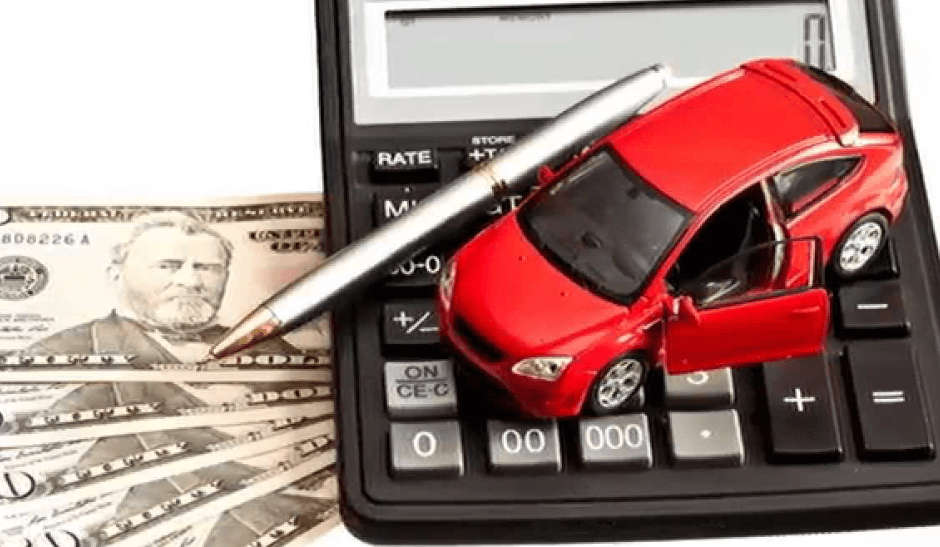The concept of a car rental deposit is another significant aspect to learn to make the process of renting a car very simple and easy. Regardless of whether you rent a car in Vancouver, Calgary, or any other place, it is better to understand how the process of depositing works: how much is deposited, when the money is returned, and what effect does it have on your debit card or credit card to avoid confusion and undesirable surprises.
A car rental deposit is a temporary hold or pre-authorization on your card, which is made during the beginning of the rental. It is used as a security to the rental company in case of damages, late returns or unpaid tolls. Deposit will be relative to the kind of car, length of rent and mode of payment. As an example, a smaller deposit might be possible on cars that are of an economy type as opposed to the luxury cars. Deposit policies used at Mr. Rent a Car are clear and well indicated during booking, therefore, renters are aware of what they will expect.
When a credit card is used, you are usually deposited but not charged, that is, such money cannot be used until the car is returned in proper condition. In the case of debit cards, the deposit can be added on the first hand and can be refunded after the last inspection. The refund can normally be done in a couple of business days depending on the speed with which your bank is processing.
To avoid deposit-related issues, here are a few helpful tips:
- Use a credit card if possible, as it prevents tying up your available cash balance.
- Inspect the car thoroughly before driving away and document any existing scratches or dents.
- Return the car on time and with a full fuel tank to avoid unnecessary deductions.
- Read the rental agreement carefully to understand what situations may lead to partial deposit forfeiture.
With a bit of knowledge of how a car rental deposit works and a few simple steps, you would find yourself in a stress free experience that you would not need to worry of on pick-up and drop-off. In Mr. Rent a Car, it is easy, safe, and clear and you do not worry because you are sure that your money and your rental experience are not ruined.
Table of Contents
What Is a Car Rental Deposit?

A car rental deposit is a deposit placed on your rental car is a security measure imposed on your credit card by the business that is car renting to ensure security. It is essentially it’s insurance in the case unexpected expenses arise, such as damages to your vehicle late pickup or additional charges.
The rental agency will check its condition when returning the vehicle following return. If there’s no issue, the full deposit will be refunded to the customer. If the car is returned damaged as a result of excess dirt or fuel issues the remaining portion of the deposit may be used to cover these costs.
How Is the Deposit Amount Determined?

Deposit amount paid by the car rental is not constant to all clients; it depends on a number of key factors that the rental companies consider prior to completing the reservation. By knowing how this amount is calculated, you can plan better and eliminate being caught at the counter by the rental. We shall now examine critically the major factors that affect your car rental deposit and how each of them contributes to the final hold in your card.
1. The Model and Brand of Vehicle
Car type, brand and model are some of the largest considerations in terms of car rental deposit. High costly and luxury models such as a BMW, Oudi or a Mercedes will usually attract a higher deposit amount since it is expensive to replace and repair them. The Rental company must be convinced that any form of damage, including minimal damages can be covered in case of an accident or misuse. On the other hand, a car like a Toyota Corolla or a Chevrolet Spark ( economy or compact cars ) often needs a much smaller deposit due to their ease and cost of maintenance. The reasoning is easy: the better the car, the further the money burden. In case you want to control the expenses, then a standard model can be chosen and decrease your deposit considerably.
2. The Length of Rental
Your rental period is also significant. When you are renting a car a few days, the deposit is usually very low. Nevertheless, in the case of renting properties over the long term, the rental firm can impose a bigger hold as a security, as the longer the use, the bigger the chances of wear and tear or damage. This is even to the extent that some providers would increase the deposit based on the expected duration of the car on rent. As an illustration, a 1 week rental may have a hold of $300 and a 1 month rental may have a hold of $500-800 on the basis of the policy followed by the particular company. This is so that the rental company is well covered in the case of any mishap that may come along in your long rental.
3. Insurance Protection and Coverage Options
Insurance coverage is another important factor. Whether you buy more insurance with the rental company which includes collision damage waiver (CDW), personal accident insurance (PAI) or theft protection, then the company can lower the amount of the deposit, since they are more secure in case something happens or is stolen. Though, when you do refuse the extra cover and only use your personal insurance or credit card protection, the rental company might increase a deposit deposit to reduce their risks. It is a typical practice in the car rental business because it makes sure that the business is not in bad financial trouble in case of an eventuality. To reduce the deposit, it is not a bad idea to make sure that you are insured in advance and provide evidence when it is necessary. This transparency may at times negotiate the reduced amount of deposit.
4. The Age of the Driver
The other important factor in car rental deposit is the age of the driver. The young drivers- mainly those who have not attained the age of 25 are reckoned to be at a greater risk since they lack the driving experience. That is why, most of the companies add a youthful motorist cost or extra sum of money in their account. To illustrate, a 30 years old driver who has rented a compact car may be required to pay a deposit amounting to $300, and a 21 years old who has also rented the same car may be required to pay a hold of $500-600. This is not to be used as punishment but rather as a way of insuring expenses in the event of possible damages or infractions. In the long run, clean driving record may lead to you receiving normal deposit rates.
5. Pickup and Drop-off Locations
Lastly, the deposit amount may also vary due to the location at which you pick up and drop the vehicle. High volume of rentals and higher risk of vehicle turnover often make the deposit to be a little higher in the location like the airports or the downtown branches that may be busy. Airport rental can also have other administrative and plant rental costs, which can have an impact on the overall hold size.
On the other hand, suburban or neighborhood branches might have more flexible or lower deposit policies, as they cater to local renters and often experience lower risk.
If you’re looking to reduce your deposit, consider renting from a non-airport branch or returning the car to the same location you picked it up from. This can simplify the process and sometimes even lower your overall rental cost.
At Mr. Rent a Car, transparency is key. The company clearly outlines the deposit requirements upfront, ensuring you know exactly how much will be held and when it will be refunded. Whether you’re renting a compact car for city driving or a spacious SUV for a family trip, Mr. Rent a Car ensures that the process is clear, fair, and customer-friendly — giving you peace of mind from the moment you book until the day your deposit is returned.
When Will You Get Your Deposit Back?
Provided that you give back the vehicle in a clean condition and do not violate all the terms of the rent, your car rental deposit will be returned to you in full with no deductions. The money will usually appear on your debit or credit card within 10-20 business days depending on the speed with which your bank processes the transactions as well as their policies. Certain banks can handle refunds at a relatively quicker pace and others may take a time to do so hence patience is essential.
To receive the money back as quickly and without any inconvenience, it is better to give the car back to the place it was or the place which was provided in your rental agreement. It is important to fill up your fuel tank to the necessary level, as mentioned in your contract, and ensure that there is no visible damage, dirt or stains in the inside of your vehicle. Pre-drop-off vacuum/wipe-down can do wonders in aiding a smooth inspection process.
Provided that everything is alright, i.e., the car is clean, is full, and is also free of any damage, the rental company will be able to process the refund in time. Other companies such as Mr. Rent a Car focus on fast turn around to allow customers to receive their deposit within the shortest time possible. In these few steps you will not only make the process very easy but will also have a positive and stress free experience when the process of renting a car comes to an end.
Can You Rent a Car Without a Deposit?

Due to the unfortunate fact that most rental companies mandate a car rental deposit as a matter of their booking process, this is an unnegotiable condition that most companies demanded. Although it may be inconveniencing to some renters particularly those who are not conversant with the process, it is actually important in ensuring that both the parties are safeguarded during the rental time.
Knowing the reasons behind this policy and its advantage to anyone can make you look on your next rental with a clear and confident eye. The primary cause of the necessity of a car rental deposit is to protect the company property. In the case of a rental company issuing a car, which in many cases costs tens of thousands of dollars, they are making a calculated risk. The deposit acts as a financial blanket security, as it shields the company against unexpected expenses of the type:
- Accidental damages: To ensure the deposit is also used to cover the cost of small scratches or dents that might happen, minor ones also need professional repair.
- Traffic offences or fines: There are times when rentals get parking or speeding fines in the course of the rental period. The deposit will enable the company to pay these charges in case they were not paid.
- Unreimbursed fuel or additional mileage: There is fuel and mileage policies in many of the rental contracts. In case the car is given back with less fuel than what was agreed or above the amount of the limit covered in the miles, some of the deposit can be reimbursed to meet the extra expenses.
- Late returns or cleaning charges: A deposit will also make sure that renters give back the vehicle in time and in proper and clean state. In case the car returns with the heavy soils or even hours late the company has a process of recovering the additional expenses.
So, while the car rental deposit policy may seem rigid, it is ultimately a practical measure designed to promote responsible car usage and maintain fairness between the renter and the company.
Tips to Avoid Issues with the Car Rental Deposit
Here are some essential tips to ensure your car rental experience is as smooth and stress-free as possible:
1. Use a Credit Card Instead of a Debit Card
Your car rental deposit should be done using a credit card as opposed to debit card as long as possible. Credit cards are chosen due to the fact that they do not instantly draw the money out of your bank account rather make a temporary hold in the rental company. This would leave you without large amounts in your checking account freezing up, and at times it may take days or weeks before it is unfreezed. They also have greater protection against unauthorized purchases by credit cards and this also resolves disputes easily in case something does go wrong.
2. Inspect the Vehicle Thoroughly Before Driving Off
You just want to spend some more time checking out the vehicle before you get out of the lot. Circle the car and scrutinize it carefully in relation to the presence of scratches, dents, or internal damage. Record clear photos or videos in various angles and close-ups of the wear and tear that already exist. This is an important step since once the rental company discovers a damage done to the vehicle that was not recorded prior to picking up, they can refuse you a portion of the deposit that they would have given to repair the damages.
3. Understand the Rental Company’s Policies in Advance
Each of the companies has its own regulations on deposits, insurance cover, damage policies and refund schedule. You should take time to look into the terms and conditions before confirming your booking. Know to the latter exactly the size of the deposit, how long it will be on hold, and the terms in which it may be refunded.
4. Return the Vehicle Clean and on Time
One of the simplest methods of getting the refund of the deposit within a short period of time is by giving the car back in the form you took it. Ensure that the car is not too messy indoors and outdoors–get rid of rubbish, dust off the surfaces, and vacuum the car. Renting companies can impose cleaning charges to oversized dirty cars and the cleaning fees can be charged directly against your deposit.
5. Refill the Fuel Tank Before Returning the Vehicle
Among the most widespread causes of renters losing some of their car rental deposit is not giving the vehicle back with a full tank of gas. The vast majority of rental contracts are based on the so-called full-to-full policy that is, you get the car with a full tank, and you have to give it back in that condition.
By following these tips, you will prevent the problems with the car rental deposit and get a hassle-free experience throughout. It is worth remembering that the purpose of the deposit will not be to inconvenience but to safeguard the renter and the firm. In selecting a credible provider such as Mr. Rent a Car, having your car checked, and reading the terms and conditions beforehand, you will be able to enjoy your vacation without any doubts about your deposit being safe as well as knowing that your experience is going to be safe, transparent, and hassle-free.


